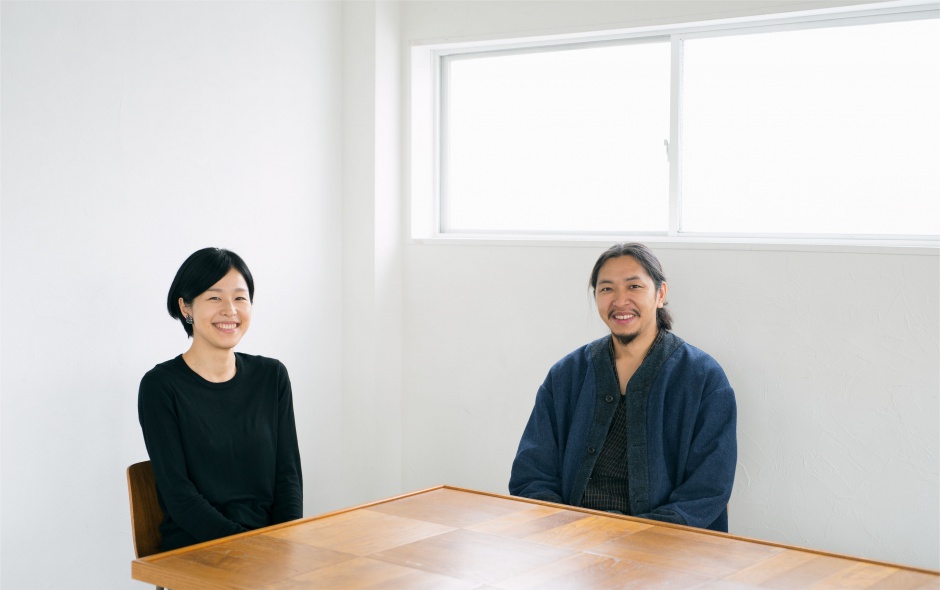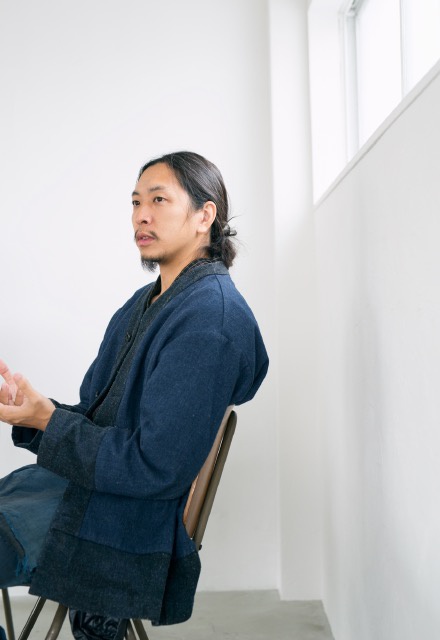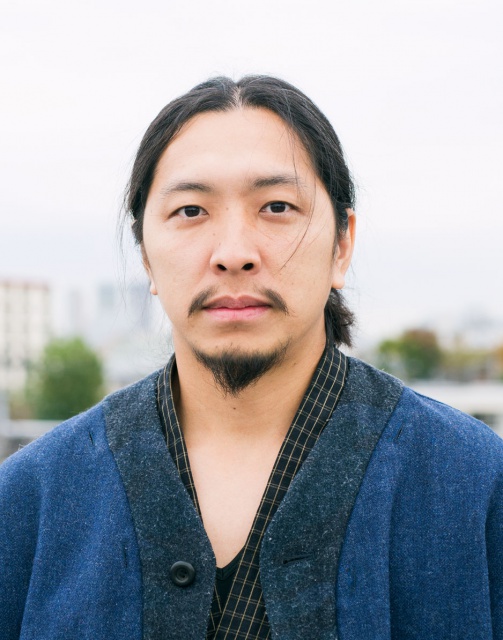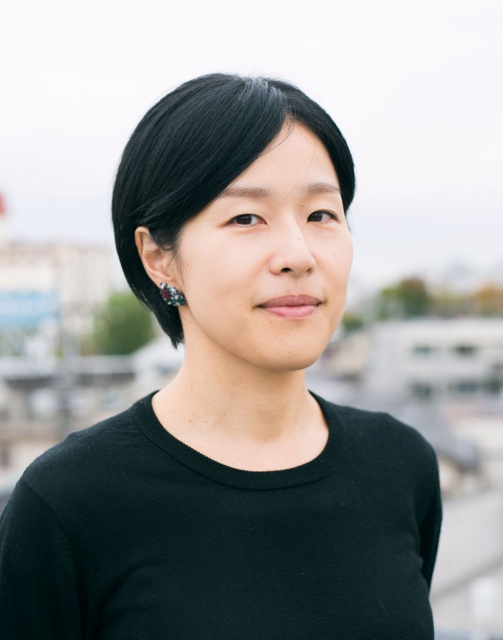vol.
015
DECEMBER
2016
vol.015 / Roundtable
The bodily senses we should trust in today
Daizaburo Sakamoto (Yamabushi, mountain ascetic) × Satoko Kobiyama (Food artist)

Finding a spot for defecating outdoors
Kobiyama: Every aspect of cities like Tokyo will no doubt become rationally mechanized as technology develops. It is exactly in an era like this that I think the individual bodily senses will be appreciated anew.
Sakamoto: Bodily senses. If you instinctively consider them necessary, isn’t it because you intuitively feel that the rationality and conventions of today’s society are actually dangerous and fragile?
Kobiyama: That’s exactly it.
Sakamoto: I feel the same. In fact, don’t you think many things that were considered social conventions ten years ago are now out of the question?
Kobiyama: Like safety and security. There have been many cases of things people always believed in like safety and security suddenly giving way.
Sakamoto: There have been many instances when I’ve stopped understanding what on earth I should live by and believe in when that happens. I myself have also lived in Tokyo, and you can lead a full life there if you condense the mass of compelling information down to your own needs. But as the years went by I thought if I didn’t base myself in something more solid, something that didn’t change on a daily basis, I would eventually be unable to keep going. One of the solutions for me was the Yamabushi. The Yamabushi values that developed from the Jomon period onwards are the oldest values I can trace back. I thought that if you took these as a starting point for thinking about things, many things would become clear. By learning for a fact what being Yamabushi meant in the past and through experiencing the Yamabushi life for myself, I have managed to establish “nature” inside me where it is beyond the influence of the judgement of others.

Kobiyama: So for you, the world you experience as a Yamabushi is the bodily sense you should trust in.
Sakamoto: Yes. And even more important is knowing there are various layers to reality. Everyday life would be untenable without rationality and functionality, but reality also includes layers of irrationality. As you know the heart doesn’t always make rational judgements. Perhaps life is made richer by listening to the voices in our hearts. But if we only said irrational things, we would no longer be able to interact with others. A sense of knowing you can’t ignore any of the layers is important, I think.
Kobiyama: That’s probably true. With that said, the ultimate bodily senses for me have to come from cooking and eating. Buildings that look just like they were produced by copy and paste are spreading all over the city and I’m always bothered when I look at them. This is because you get absolutely no sense of them decaying or rotting like food. This is linked to something almost like a sense of fear that they can’t revert back to earth. Speaking of not rotting, the same goes for food in antibacterial packaging. I find the recent global craze for all things fermented strangely valid. Maybe people’s unease about food that doesn’t rot has driven people albeit unconsciously to fermentation. All living things decay and rot. I don’t want to forget this crucial bodily sense.
Sakamoto: All things rot, and when they do they smell. But today’s society has thoroughly eliminated smell. Excrement is a case in point. If you return excrement to nature it is soon broken down by micro-organisms and becomes nutrition for the soil. But now it is flushed away by water in an instant.

Kobiyama: Where does it go? The reality of not knowing that is really frightening if you think about it in detail.
Sakamoto: At the time of the Great East Japan Earthquake, I went with some foreign newspaper staff into the affected areas. At that time affected people had been evacuated to an elementary school, and when I happened to pass by the restroom, I saw the men’s urinals were piled high with excrement. I thought what an appalling situation it was. While it’s difficult to generalize because conditions vary from person to person, I felt that if people had the option of defecating outdoors, it wouldn’t have come to this. I’m saying that the beast a person essentially is and the self in society have become too detached from each other. When I’m in the mountains I often go to the toilet outdoors, and I think everyone should have their own outdoor defecation spot.
Kobiyama: Outdoor defecation spot. . .
Sakamoto: I just pop over to another mountain and defecate. In summer, as soon as I’ve done my business insects come along and turn it into fertilizer. I marvel at the power of nature. I think especially people like you who cook should defecate outside.
Kobiyama: So I have to think about excretion as well. Right I’m off to find my outdoor defecation spot (laughs).
Sakamoto: I hope you find one! (laughs)
Kobiyama: Now I want to hold a food event which not only makes people aware of eating, but also properly aware of excreting food and turning it back into soil.
Sakamoto: We have a variety of things in common. Maybe we should do something together.
Kobiyama: Definitely!
-

Daizaburo Sakamoto
Yamabushi. Born in 1975 in Chiba. Sakamoto is interested in the development of art and artistic accomplishments thought to have links to Yamabushi culture, as well as in folk religion and the art of living. He also conducts practical research on festivals and performing arts. Currently based in Tohoku, Sakamoto writes about the connection between nature and people and runs his own shop Jusanji in the Nanokamachi area of Yamagata City. His books include Yamabushi to boku [Yamabushi and Me] and Yamabushi Nouto [Yamabushi Notes]. www.13ji.jp
-

Satoko Kobiyama
Food artist and director of yama foods. Born in 1980 in Tokyo. Graduated from Tama Art University. With a focus on the power of raw materials, the power of cooking and palatability, Kobiyama offers “food and everything around it” from every angle, such as specially-designed catering providing a holistic and physical eating experience, event planning, workshops, recipes, photography coordination and writing. yamafoods.jp
Editing & Written by Nanae Mizushima
Photography: Kasane Nogawa
Translation: Office Miyazaki, Inc.



